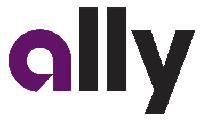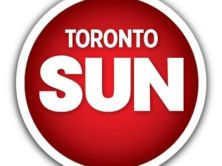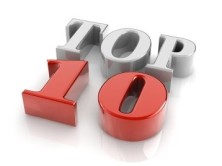
Ally Bank sponsors NPR's Planet Money, raising questions that the relationship, which is unique at NPR, might bias coverage.
NPR ombudsman Alicia Shepard focused her December 14 column on Planet Money, an NPR podcast/blog and its relationship to its monied-sponsor, Ally Bank.
Ally Bank is a rebranded General Motors Acceptance Corp–a financial company that received a $12.5 billion federal bailout. Planet money is a show that investigates financial themes and stories, which has raised questions among NPR listeners about whether the bank is an appropriate sponsor for the show.
“Ally Bank, committed to straightforward banking, including customer service with a real human being 24/7,” is one of two credits that have rotated through NPR’s radio programs and web site since May,” Shepard writes. “Ally is also the exclusive sponsor of Planet Money, a three-times-a-week popular podcast and weekday blog that NPR started in August 2008 to cover the global economy — just before the financial crisis went into overdrive.”
What’s the problem with that? Listeners have raised a few objections, Shepard explains, including “Should NPR solicit funding from a financial services business for a program specifically aimed at covering the economy? Should NPR occasionally disclose that Ally Bank is the rebranded GMAC?” and “Has NPR given Ally Bank more favorable coverage than it might have gotten otherwise?”
Shepard says listener letters have expressed worry that the NPR podcast might have a conflict of interest in reporting on money issues if their sponsor is a bank. “Cynical listeners are bound to wonder if NPR might go easy on news coverage of Ally,” she writes. StinkyJouranlism doesn’t look at such questions as cynical. It is important to look critically at instances where a reporter might have a competing loyalty.
After all, Planet Money covers the economy, including stories about the recent financial meltdown and government bailouts for financial and auto companies. Ally Bank, really General Motors Acceptance Corp. received $12.5 billion in federal bailout money, and is thus a potential subject of the kind of coverage Planet Money regularly offers.
But just because it’s relevant to ask the question, doesn’t mean the answer will reveal a conflict of interest. From Shepard’s report, it looks like Planet Money, though sponsored by Ally, has been fair and independent in its coverage so far, though it’s only done one story on Ally.
NPR’s Planet Money covered a story on how GMAC (Ally) asked the government for a third bailout in October, Shepard writes, pointing to a blog post and Oct. 28 podcast on the subject focusing on “Resurrection Risk-Taking,” Shepard notes that Planet Money reporters didn’t coddle Ally.
The reporters noted that Ally was offering 2 (today it’s 1.5) percent interest for its no-penalty Certificates of Deposit, while Wells Fargo was offering 0.5 percent. “The rates of their CDs are among the highest rates anywhere,” noted Joffe-Walt.
According to Shepard, GMAC wasn’t overly pleased with the piece. She quotes Gina Proia, GMAC’s spokeswoman saying “We thought the ‘Resurrection Risk-Taking,’ in addition to being false, is inflammatory.
Shepard writes that Ally’s relationship to Planet Money reflects a new type of funding for NPR, which involves unique issues. The Ally credit is broadcast on its own after Planet Money segments–something called a “special series adjacency”–while other sponsors are usually grouped together. This may make it seem like the bank is getting special treatment, but in some ways it’s just different treatment.
Ellen Weiss, NPR’s senior vice president for news, says in the piece that “the “firewall” — which keeps advertisers from influencing content — is the same with Ally as for any other sponsor. ‘I’ve been here 27 years and I’ve never had anybody tell me I could or couldn’t do a story based on a sponsor,’ said Weiss. ‘The main reason I feel we can test the waters is because we have 35 years of credibility.’”
According to Shepard, Planet Money disclosed in their “Resurrection Risk-Taking” story that Ally is a major funding source. And as we’ve written before, transparency, while not a remedy for competing loyalties, is still an important step to maintain trust.
So far, from Shepard’s arguments it seems like Planet Money is negotiating this relationship independently and without conflict, which is encouraging considering that these kind of new sponsor relationships are likely to grow. As Shepard says “NPR’s arrangement with Ally Bank is unique but may not remain so.”
Read the ombudsman’s piece in full here.




